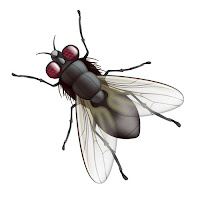Photo by Edward Quinn (1959)
'If you marked on a map all of the routes I've made and connected the dots
with a single line, might not a Minotaur emerge?' - Picasso
I.
Yesterday, I finally got along to the exhibition of ceramics and works on paper by Picasso at the Halcyon Gallery [1], featuring over 130 original pieces, which essentially confirm something that even his critics and detractors know deep down; namely, that Picasso was the greatest artist of the 20th century.
As much as I loved his works, however, I think my favourite image was a photograph by Edward Quinn taken of Picasso masquerading as the Minotaur in his studio in 1959 ...
II.
Picasso was obsessed with this taurean figure from Greek mythology, who was famously part man and part bull, and dwelt at the centre of the Labyrinth [2].
The Minotaur became a powerful symbol of desire, violence, and horror in Picasso's artwork and some authors like to imagine that he also served as Picasso's alter-ego, embodying the cruelty, lust, and virile vulnerability present in his own character and complex personal life [3].
But of course, Picasso wasn't the only artist who identified in terms of the Minotaur; many of the Surrealists (and associated artists) in the 1930s were also fascinated by this mythical monster, which is why when, in 1933, a title was needed for a new magazine Bataille suggested Minotaure and his pal André Masson excitedly agreed to design a cover for the first edition.
But then Picasso - ever alert to what was going on and not slow in cheerfully stealing ideas and jumping on the lastest trend - co-opted the idea of the Minotaur and, with André Breton's support, not only produced an elaborate image for the magazine's cover, but also supplied four other drawings to be used, insisting that the lead article, to be written by Breton, promoted his vision of the Minotaur.
Whether this makes Picasso the 'fat little magpie' that Adam and the Ants once described him as, or just someone with a genius for seizing the moment and self-promotion (a bit like David Bowie), I'll let readers decide [4].
III.
Despite being published rather irregularly (due to financial considertions), Minotaure (1933-39) proved to be a great success and had a wide circulation in most European countries.
Far superior in quality to most other arts magazines of the period, it was beautifully illustrated and had covers by prominent artists including Matisse, Miró, and Dalí. Not only did it contain articles on the plastic arts and literature, but also music, theatre, philosophy, psychoanalysis, anthropology, esotericism and all things avant-garde.
Whilst not originally intended to be a surrealist publication per se, Breton and his chums on the editorial committee naturally exerted a huge (and ever-increasing) influence on it and Minotaure became a significant element in Surrealism's rise from a relatively obscure circle of poets, artists, and intellectuals in the 1920s to a major movement of 20th century art.
Notes
[1] Picasso: A Legacy (16 Oct 2025 - 4 Jan 2026) at the Halcyon Gallery (148 New Bond Street, London, W1): for further information and to view selected works, click here.
[2] The Labyrinth was an elaborate maze-like construction designed by Daedalus and his son Icarus, acting upon command of King Minos of Crete. Every nine years the people of Athens were forced to choose seven noble youths and seven beautiful virgins to be offered as sacrificial victims to the Minotaur. He was eventually slain by the Athenian hero Theseus.
[3] See, for example, John Richardson, A Life of Picasso: Volume IV: The Minotaur Years 1933-43 (Jonathan Cape, 2022).
[4] To be fair to Picasso, it's not as if he stole an original idea from Bataille and Masson; the Ancient Greek legend of the Minotaur had been popular for some years in intellectual circles and had already been referenced in the work of several other writers and artists.
The Adam and the Ants song I'm referring to is 'Picasso Visita el Planeta de los Simios', which can be found on the Prince Charming album (CBS, 1981) and played on YouTube by clicking here.

%20Pablo%20Picasso.jpg)










%20and%20Malevich%20(1915).png)




.jpg)
.jpg)